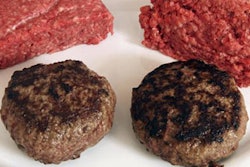DEARBORN, Michigan (AP) — Ford Motor Co. said Friday its net income fell by 45 percent in the first quarter as European sales plummeted and the company paid higher taxes.
The company announced it will try to cut its pension costs by offering lump-sum payments to about 90,000 U.S. white-collar retirees and former employees. Ford said it is the largest such offer in U.S. history. Payouts will start later this year and come from pension plan assets. Ford doesn't yet know how much the plan will cost.
Ford earned $1.4 billion, or 35 cents per share, in the first quarter. That was down from $2.5 billion, or 61 cents, a year earlier.
Ford said nearly half the decrease was due to paying a higher tax rate. The company recently moved tax credits and other assets back onto its books, after moving them off in 2006 when it wasn't making a profit. Ford is now paying a 32.5 percent tax rate, compared with 8 percent a year earlier.
Revenue fell 2 percent to $32.4 billion.
Without one-time items, including buyouts of 1,700 factory workers, Ford earned 39 cents. The results beat Wall Street's expectations. Analysts polled by FactSet had forecast earnings of 35 cents per share on revenue of $32.3 billion.
Ford lost money in Europe, where sales fell by 60,000 vehicles, and Asia, where sales fell by 25,000 as China's appetite for new cars slowed. Ford's performance was strongest in North America, where its pretax profit rose 17 percent to $2.1 billion. That was the highest quarterly profit for the region since 2000.
Ford said it doesn't know how many retirees or former workers will take the pension payments. The number will vary depending on a worker's salary and years with the company. Money for the payments will come from the global pension plan, which was $15.4 billion short of its $74 billion in liabilities at the end of last year.
Ford said it doesn't expect to lose any car or truck production due to a global shortage of a nylon resin used to make fuel lines, brake lines and other auto parts. Automakers have been scrambling to find more resin after a March explosion and fire damaged a German chemical factory that was a major producer of the resin. Fordsaid it is working with parts suppliers to avoid any shortages.


















